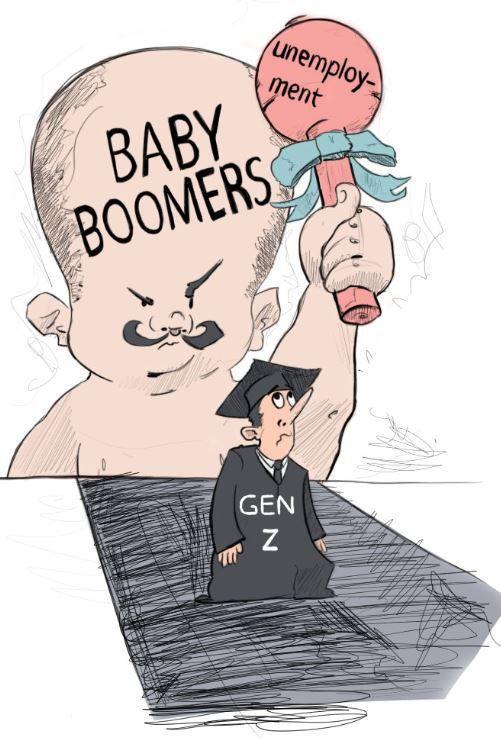Our grandparents are baby boomers. Our parents are Generation X. Our older siblings are likely millennials, sometimes called Generation Y. If you’re in undergrad right now, you’re probably a member of Generation Z. Often confused with millennials, it’s important to note the cut-off year before you’re mistakenly categorized.
Millennials include anyone born before 1997, and Generation Z includes anyone born after, according to Pew Research Center. Generation Z is often called the post-millennial generation. This is an important distinction to make, as we’re often blamed for generational problems we’re not even apart of.
Like other generations, we are subject to harsh criticism from the ones who came before us. We’re called lazy, technologically-dependent and egotistical – all of which are false. There are many reasons our generation is subject to these stereotypes, all of which are unfair. One theory popularized by William Strauss and Neil Howe, which proposed generations, called “cohorts,” and their behavior are deeply affected by historical events and important developments that happen in their formative years. Older generations often see us as the reason for the problems in the world they’ve created, choosing to condemn us rather than take responsibility.
Generation Z, while still in its early stages, is doing well. Some of the things older generations see as our flaws are the reason we’re doing so well. We’re more socially aware, creative and self-sufficient. This is evident in numerous activities Generation Z participates in.
The technology-dependence members of Generation Z have is rooted in our self-education. According to a study done by the Illinois CPA Society, 52 percent of Gen Z-ers use YouTube or social media for research assignments, while 33 percent watch lessons online and 20 percent read textbooks on tablets.
Generation Z is hardly lazy. Our generation is full of go-getters, with many owning their own businesses or planning a successful future for ourselves. Many of us have grown up in tougher times and learned from the mistakes of our older counterparts.
“Growing up during the global financial crisis, Gen Z-ers are realistic and mindful of financial issues and future career from a younger age,” said An Hodgson, an income and expenditure manager at Euromonitor International in a Business Insider article.
Generation Z is also a generation of change. We believe in change and don’t mind fighting for it. We grew up in a time of advancement for various minorities and have seen progress on the social justice front.
We were children when the first black president was elected. For some, Barack Obama is the only president they’ve known. The March for Our Lives, which took place on March 24, 2018, had more than 1.2 million participants. The purpose of the march was to advocate for gun control after the Stoneman Douglas High School shooting. The march was put together by those same high schoolers who were going to their classmates’ funerals just a month prior. They took the initiative and fought for the change they wanted to see.
Generation Z isn’t like the generations of the past. We’re more innovative, adaptable and focused on being successful and changing the world around us. To detract from this in an effort to insult or blame us for problems we have not contributed to is not only misguided, but incorrect.
Maya Stevenson is an English and economics sophomore from Baton Rouge, Louisiana.
Opinion: Generation Z doing better than previous generations, shouldn’t be condemned
October 2, 2018






